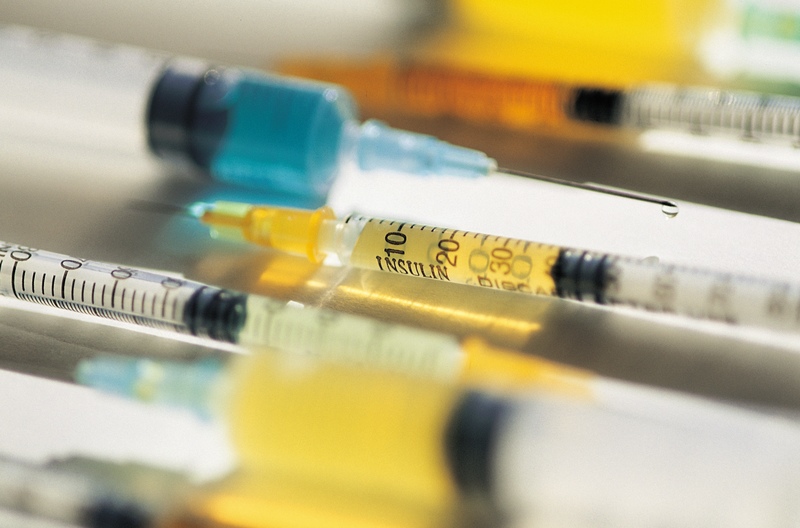
Here are some of the latest health and medical news developments, compiled by the editors of HealthDay:
Cell Phones Linked to Increased Brain Cancer Risk: Study
Long-term cell phone is associated with an increased risk of a certain kind of brain cancer, a Swedish study finds.
People who used cell or cordless phones for more than 25 years were three times more likely to develop glioma brain cancer than those who used those phones for less than a year, the New York Daily News reported.
The more time that people talked on their cell phones, the more likely they were to develop the deadly brain cancer. Cell phone use was not linked with increased risk of any other types of brain cancer, according to the study in the journal Pathophysiology.
Even at triple the risk, the odds are developing glioma are low. The rate of the disease in Europe was just .005 percent between 1995 and 2002, so the rate tripled is just 0.16 percent, the Daily News said.
And while the study shows an association, it does not prove that cell phone use causes glioma.
The study offers more evidence that cell phones and brain cancer may be connected, but further research is needed, according to Dr. Gabriel Zada, a neurosurgeon at the University of Southern California’s Keck School of Medicine. He was not involved in the study.
In 2011, cell phones were deemed “possibly carcinogenic” by 31 World Health Organization scientists, and the U.S. Federal Trade Commission is reviewing its 1996 safe radiation exposure limits, the Daily News reported.
The largest study to date — partly funded by cell phone makers — didn’t find strong evidence that cell phone users were at increased risk for brain tumors.
—–
U.S. Should Ease Blood Donation Restrictions on Gay Men: Expert Panel
A ban on gay and bisexual men donating blood should be partially ended, says a panel of experts who advise the U.S. Department of Health and Human Services.
The ban — introduced in 1983 due to concerns that AIDS-causing HIV could be transmitted through blood transfusions — forbids blood donations from men who have had sex with men anytime since 1977.
In a 16-2 vote Thursday, the advisory panel said men who have sex with men should be able to give blood if they haven’t had sex with another man for one year, Bloomberg News reported.
The recommendation will be considered by a Food and Drug Administration advisory panel on Dec. 2. If a change is made, it would place the United States’ policy in line with other countries.
The American Red Cross and other groups say the risk posed by blood donations from gay men is miniscule in most cases, and doesn’t warrant a full ban that prevents much-needed blood donations, Bloomberg reported.
—–
New Version of Injectable Birth Control Drug Created for Developing Nations
A new single-use syringe version of the popular injectable birth control drug Depo-Provera is now available in developing nations.
The product, called the Sayana Press, is portable and enables the drug to be given with minimal training, The New York Times reported.
A partnership between drug maker Pfizer and several global aid groups will make the product available in 69 nations in Africa, Asia, Latin America and Eastern Europe.
“You can imagine somebody sticking this in their satchel and going into a very remote area,” Peter Stevenson, vice president of portfolio management for Pfizer’s Global Established Pharmaceuticals, told The Times.
Copyright © 2026 HealthDay. All rights reserved.

